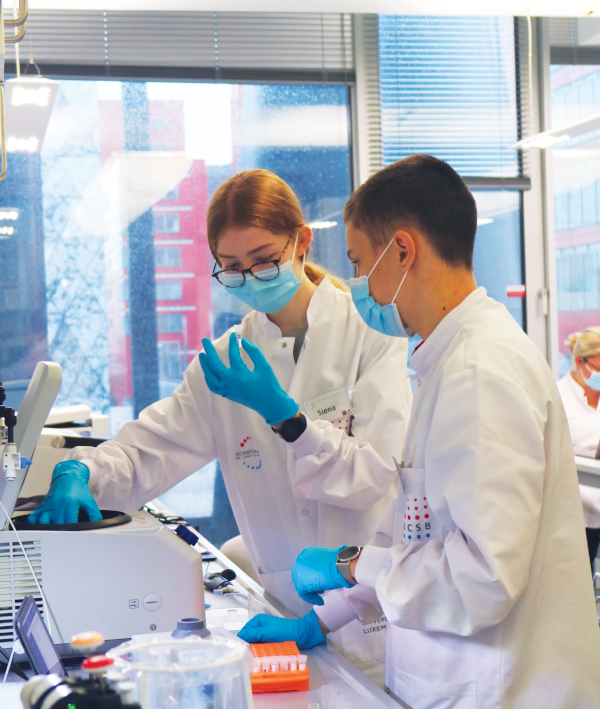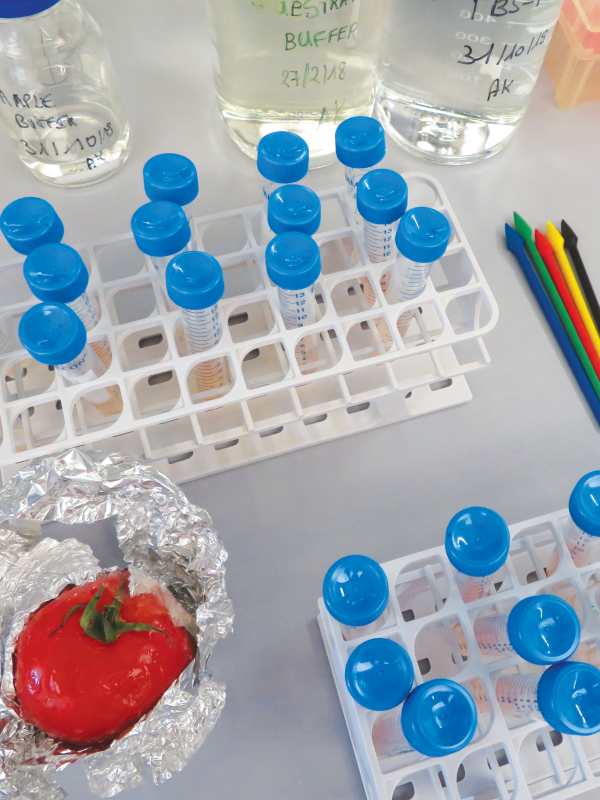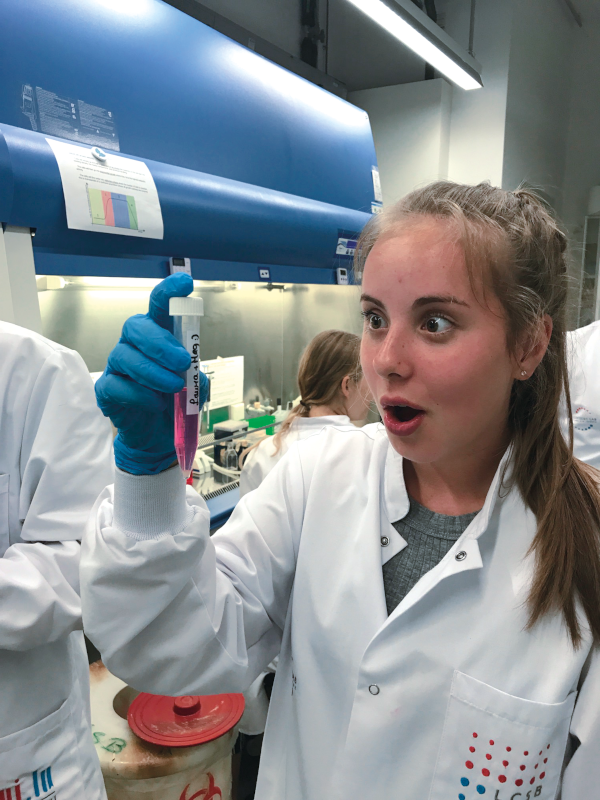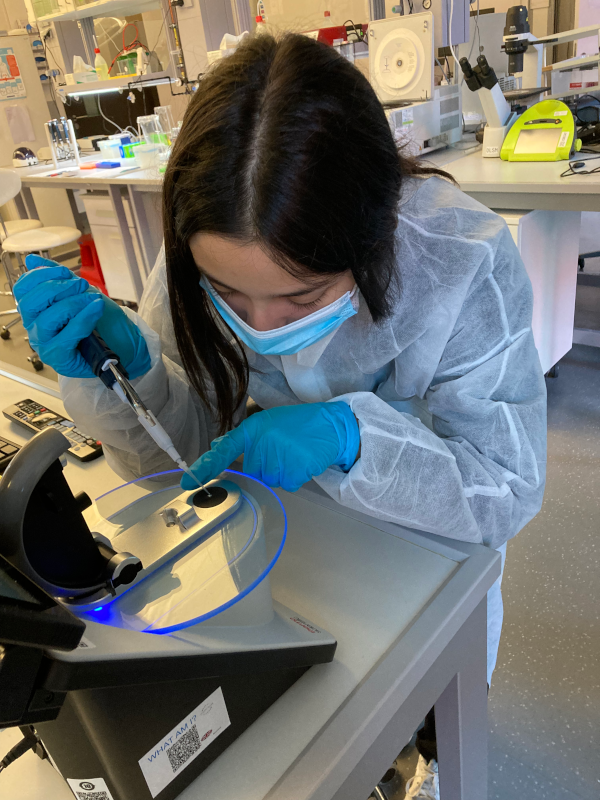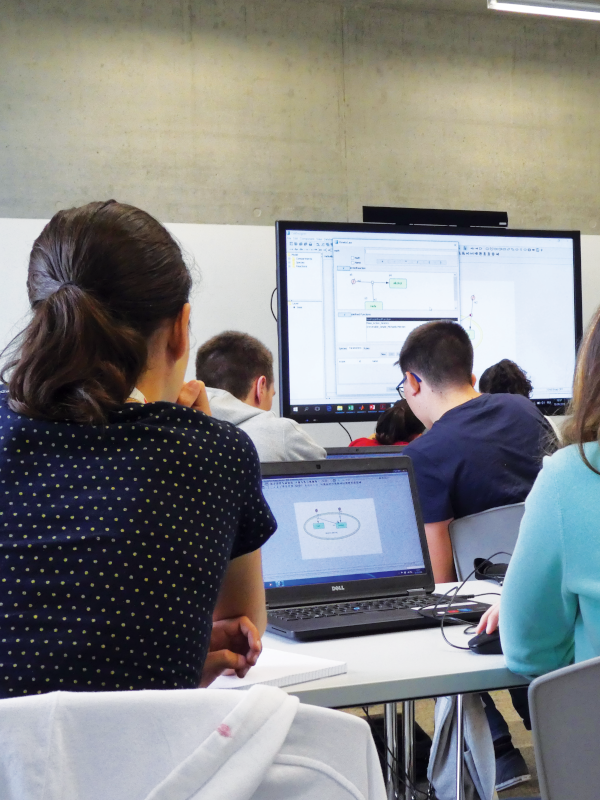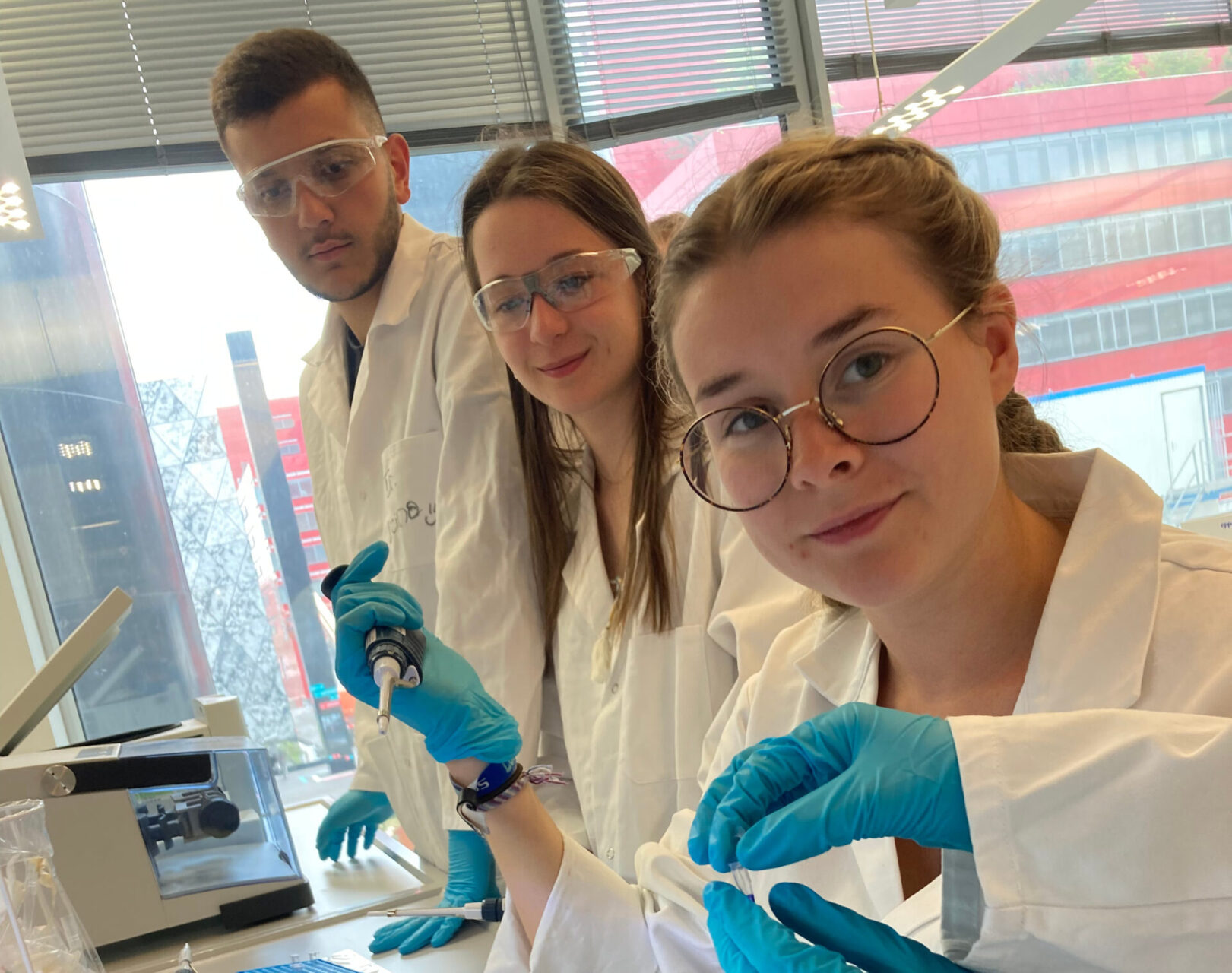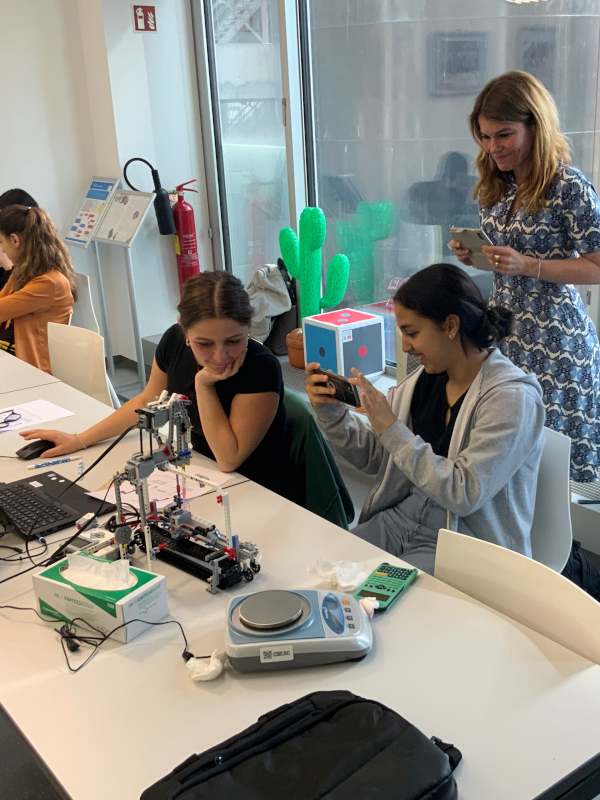DNA on the tanning bed
This biology workshop focuses on exploring the effect of UV light on the DNA of the bacterium Escherichia coli. The workshop starts with a short theoretical part to set the scientific context. Afterwards the students enter the lab to perform the hands-on experiments. Their results are critically discussed within the group at the end of the lab day.
Equipped with lab coats and gloves the high-school students have the opportunity to discover
several research techniques:
- DNA-isolation
- Polymerase chain reaction (PCR)
- Agarose gel electrophoresis
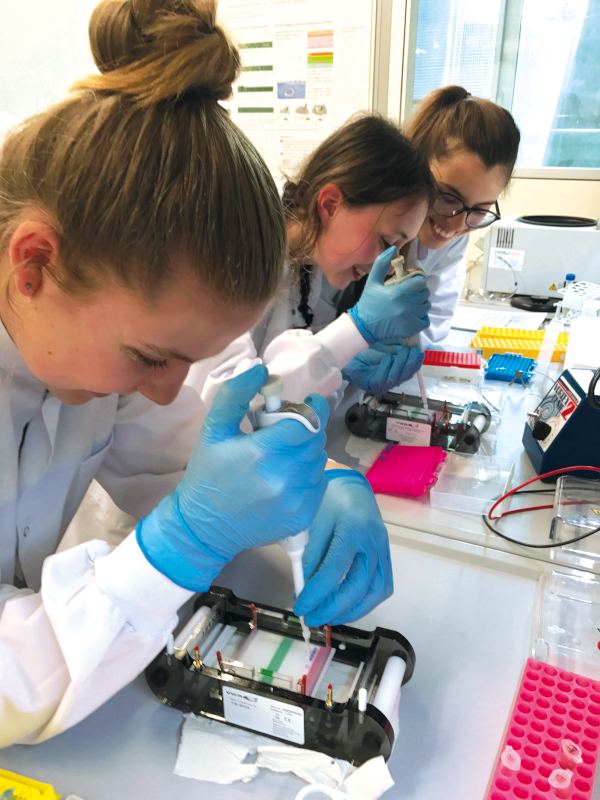
Languages
English, French, German & Luxembourgish
Time Schedule
9:00 -15:30 (including one-hour lunch break)
Location
Biotech 1
7, avenue des Hauts-Fourneaux
L-4362 Esch-sur-Alzette
Fee
7 Euro per participant (VAT included)
The Scienteens Lab sends an invoice after the workshop (no payment on site).
Schedule
